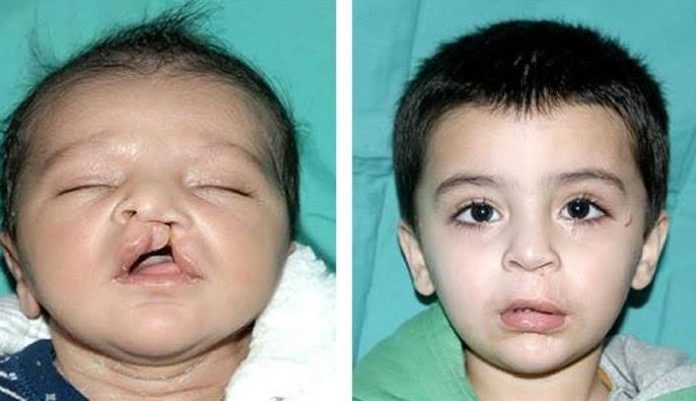Islamabad, July 24 (DNA): Islamabad Cleft Lip and Palate Association (ICLAPA) continued the process of providing free medical treatment to the children with cleft lip and palate.
If needed, an ICLAPA’s team of surgeons are available to operate affected children. According to the Association’s senior member Mrs. Farhat Akhtar Rehman, the surgery takes place at the Fuji Foundation Hospital and Heart International. “We welcome the affected patients to get the treatment on urgent basis free of charge, “ she added.
The parents of the affected children have been asked to contact Mrs. Farhat on her cell numbers 03335157676 and 0300-5192490 to get them registered for the normal treatment or surgery.
Mrs Farhat Akhtar Rehman said his organization had been providing free medical facilities to the poor families since 2004 with the support of families, friends and philanthropists.
The ICLAPA was a group of volunteers, which relied on donors to bring hope and happiness in the lives of people, for whom it was financially difficult to give treatment to their children. The noble mission was initiated by her late husband Dr Akhtar Rehman.
According to the doctors, delay in treatment of the suffering children could lead to speech, behavioural and psychological problems making them vulnerable in society. Nearly 10,000 children with these deformities are born every year in Pakistan and alarmingly about 200,000 kids with these deformities are waiting to be operated upon.
Cleft lip occurs more frequently than cleft palate. Boys are more commonly affected by only cleft lip or cleft lip with cleft palate whereas girls suffer more from cleft palate. The causes of cleft lip and palate are still unknown; however it is believed that it is due to a combination of genetic and environmental factors or as a result of exposure to viruses and chemicals during the development of the fetus.
Problems in eating or feeding, ear infections, hearing loss, speech impairment, dental issues and social isolation are also issues associated with such deformities.

















